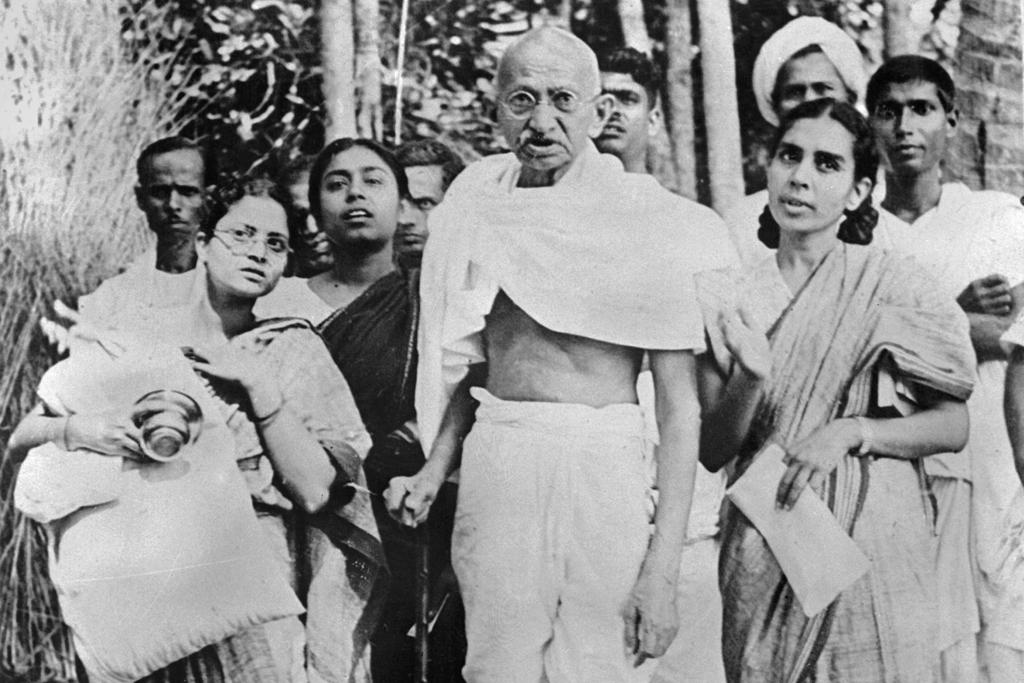Was Gandhi bisexual? Letters go on display on 65th death anniversary
Indian philosopher and nationalist leader Mohandas Karamchand GGndhi, better known as MGhatma Gandhi (C) poses with women during his tour of Bengal province in 1946.
NEW DELHI, India and JOHANNESBURG, South Africa — On the 65th anniversary of Indian freedom fighter Mahatma Gandhi's death, the Indian public is getting a rare glimpse into a little-explored portion of his private life.
A collection of letters exchanged between Gandhi and a South African bodybuilder, which hint at an intimate relationship between the two men, went on display in New Delhi on Tuesday.
Agence France-Presse reported that the archive of letters and photos, which belonged to Hermann Kallenbach, was purchased by the Indian government last year.
"Gandhi met Kallenbach in 1904 while working as a young lawyer in Johannesburg, and the two men are said to have become fast friends," GlobalPost Senior Correspondent for South Africa Erin Conway-Smith said. "Today you can visit and even sleep in the house that Kallenbach designed for Gandhi in 1907, and where the men lived together for about two years."
Gandhi lived with Kallenbach, a German-Jewish bodybuilder and architect, in the years before he traveled back to India to lead the country's struggle for independence.
"The house, which has African influences such as a thatched roof and rondavels (round huts), was restored and turned into an upscale guesthouse a few years ago," Conway-Smith said. "An on-site museum tells of Gandhi's experiences in South Africa, and particularly of his time with Kallenbach, though it says only that they lived 'a life of simplicity, physical exercise, meditation and chastity.'"
GlobalPost's senior correspondent in India, Jason Overdorf, has also reported on posthumous revelations about Gandhi's personal life.
"It's intriguing that the Indian government has chosen to display Gandhi's letters to Kallenbach, given India's reaction to the conclusions that author Joseph Lelyveld drew from their correspondence in his recent book, 'Great Soul: Mahatma Gandhi And His Struggle With India,'" Overdorf said.
In 2011, the government considered criminalizing any insult to the Independence leader after the state of Gujarat banned Lelyveld's book for daring to suggest Gandhi might have had a homosexual affair. By buying and displaying the controversial letters, India is demonstrating a new willingness to embrace Gandhi in all his complexity, rather than reducing him to a two-dimensional saint.
"How completely you have taken possession of my body," Gandhi was quoted as writing in a letter to Kallenbach in Lelyveld's book. "This is slavery with a vengeance."
Erin Conway-Smith reported from Johannesburg. Follow her on Twitter @ejc. Jason Overdorf reported from New Delhi. Follow him @joverdorf.
